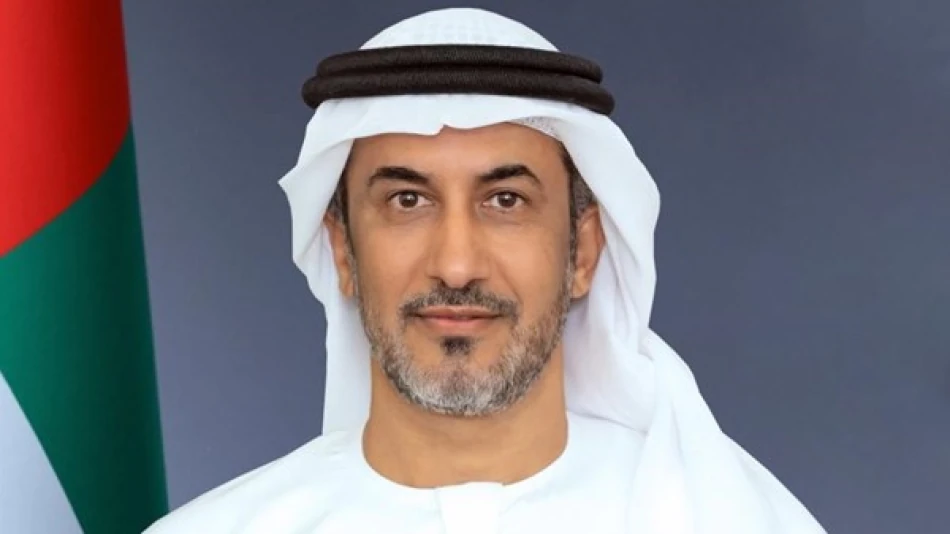
UAE Pharmaceutical Authority Unveils Roadmap for Pharma Sector's Promising Future
UAE Emerges as Global Leader in Fast-Track Drug Approvals, Challenging Western Regulatory Dominance
The Emirates Drug Establishment is positioning the UAE as a pioneering force in pharmaceutical regulation by bypassing traditional Western approval pathways and directly evaluating drugs for market authorization. This bold regulatory shift, coupled with the UAE becoming the first country globally to approve several breakthrough treatments, signals a strategic push to transform the nation into a trusted hub for medical innovation and challenge the established order of drug regulation dominated by the US FDA and European Medicines Agency.
Breaking Free from Regulatory Dependencies
The UAE's pharmaceutical authority has announced plans to accelerate drug approvals by conducting direct scientific evaluations rather than waiting for reference countries to grant authorization first. This represents a significant departure from the traditional model where smaller markets typically follow the lead of major regulatory bodies like the FDA, EMA, or Health Canada.
The move mirrors similar strategies employed by Singapore's Health Sciences Authority, which has successfully positioned itself as a gateway for pharmaceutical companies entering Asian markets. However, the UAE's approach appears more aggressive, with the country actively seeking to become a first-mover in approving innovative treatments.
Strategic Implications for Global Pharma
For pharmaceutical companies, this development creates new opportunities and challenges. Companies can potentially bring products to market faster in the UAE, generating early revenue and real-world evidence that could support applications in larger markets. However, it also requires companies to invest in building relationships with UAE regulators and understanding local requirements.
The strategy aligns with the UAE's broader economic diversification goals, moving away from oil dependency toward knowledge-based industries. By creating a competitive regulatory environment, the UAE aims to attract pharmaceutical investments and manufacturing facilities, similar to how Singapore became a biotech hub in Asia.
First-to-Market Achievements Signal Regulatory Confidence
The UAE's regulatory confidence is evidenced by several world-first approvals in 2024. The country became the first globally to approve Rilzabrutinib, an innovative oral treatment for immune thrombocytopenic purpura (ITP). This achievement demonstrates the UAE's willingness to take calculated risks on promising therapies.
Additionally, the UAE approved Casgevy, a gene therapy for sickle cell disease, and Tofabrutinib, the first oral treatment for non-relapsing secondary progressive multiple sclerosis. These approvals span different therapeutic areas and treatment modalities, suggesting a comprehensive approach rather than focus on specific disease areas.
Competitive Advantage in Rare Diseases
The focus on rare disease treatments and gene therapies is particularly strategic. These areas often have limited treatment options and smaller patient populations, making regulatory authorities more willing to accept innovative approaches. Success in these niches can build credibility for more mainstream therapeutic areas.
This approach contrasts with traditional regulatory strategies that prioritize safety through extensive review processes. The UAE appears to be betting that faster access to innovative treatments, combined with robust post-market surveillance, can deliver better patient outcomes while attracting industry investment.
Building Infrastructure for Pharmaceutical Leadership
Beyond regulatory reform, the UAE is investing in supporting infrastructure. The establishment of a dedicated call center (800EDRUG) may seem mundane, but it represents the kind of stakeholder engagement that builds trust with pharmaceutical companies and healthcare providers.
The country's hosting of the third World Local Production Forum in Abu Dhabi, focused on "Enhancing Local Production for Health Equity, Global Health Security, and Sustainable Development," demonstrates ambitions beyond just drug approval. The UAE is positioning itself as a thought leader in pharmaceutical manufacturing and supply chain resilience.
Integration and Consolidation Strategy
The Emirates Drug Establishment is consolidating regulatory services under one umbrella, streamlining processes that were previously scattered across different government entities. This consolidation mirrors successful models in countries like Switzerland and Denmark, where centralized agencies have created efficient, business-friendly regulatory environments.
The integration of artificial intelligence and digital solutions into drug discovery and regulatory processes positions the UAE at the forefront of regulatory technology adoption. This technological focus could provide sustainable competitive advantages as the pharmaceutical industry increasingly embraces digital transformation.
Market Impact and Future Outlook
The UAE's aggressive regulatory strategy could force other countries to reconsider their approval timelines and processes. If the UAE successfully demonstrates that faster approvals can coexist with patient safety, it may pressure established regulatory authorities to modernize their approaches.
For investors, the UAE's pharmaceutical sector presents interesting opportunities. The combination of regulatory innovation, government support, and strategic location between Europe, Asia, and Africa creates potential for significant returns. However, success will depend on execution and the ability to maintain safety standards while accelerating approvals.
The ultimate test will be whether the UAE can maintain its regulatory credibility while pursuing speed. Early successes with innovative treatments provide promising signals, but sustained success will require building robust post-market surveillance systems and maintaining transparent communication with global regulatory partners.
Most Viewed News

 Layla Al Mansoori
Layla Al Mansoori






